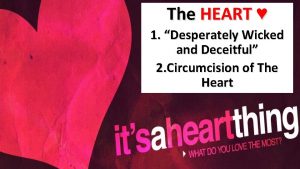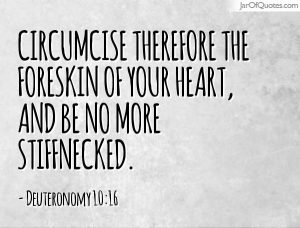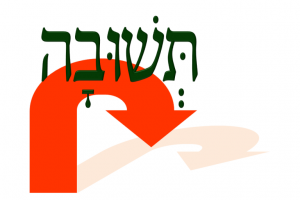Netzovim 2021: Circumcise Me Again?
by devadmin | September 2, 2021 8:51 pm
Circumcise Me Again?
And before we speak of circumcision, let’s begin with a mazel tov to our friends Rachel and Abe Abittan upon the arrival of yet another grandson (keyn yirbu) born to their children Sophia and Yaakov Abittan. Baby Abittan‘s circumcision will take place Im’H next week. Welcome to the world and may you bring much nachas to your parents, grandparents-both sides- great grandmother Ida Abittan (I understand she read this review weekly), and to your ever-expanding list of cousins.
Avada you all know that our forefather Avrohom was the first to have undergone a bris-mila (circumcision), and by doing so, entered into the covenant with the RBSO. That was his entry ticket; he became the first ever Hebrew. The instructions to Avrohom are found in Parshas Lech Lecha (Sefer Bereishis) which we will begin reading on Simchas Torah: coming to a shul near you in the coming weeks. Says the heylige Toirah (Bereishis 17:10-11), azoy: “This is My covenant which you shall keep between Me and you and your descendants after you: every male among you shall be circumcised. You must circumcise the flesh of your foreskin. This shall be the sign of the covenant between Me and you.”
The RBSO instructed that come day eight after a boy is born, the baby must undergo a circumcision. Avrohom -so we read- seemingly performed his own bris. Details are not provided and avada the medrish adds some color, mostly red. As an aside, the Hebrew word for circumcision is milah, ober for reasons ver veyst, to this day we refer to it as a bris – which is the Hebrew word for covenant. We schedule, plan, and have people join us at the bris: no one goes to the milah! The bottom line: the RBSO demands (at least) of Jewish males, an initiation ceremony. We give a little off the top and shoin, we’re in.
 And the question is azoy: why are we discussing Sefer Bereishis and the bris ceremony this week as we read Parshas Netzovim on this, the last shabbis before Rosh Hashono? And the answer Raboyseyee, is azoy: it’s in this week’s parsha where the RBSO demands of His people yet another circumcision. Circumcise me again? Ouch! Ober as the heylige Toirah tells us, indeed, a second bris is in order. Having previously given -so to speak- does not exempt one from what the RBSO has in mind. Moreover, it appears to the Ois that the instructions of the second circumcision may also seemingly include woman, say it’s not so. What’s pshat? Are we mamish expected to undergo the knife again? Are men, already insecure about their shortcomings, if you chap, ready to give a few more centimeters? And just how does a woman undergo the bris procedure? Shoin, let’s find out how this new bris was to be performed. What was cut? Did it bleed? Get smaller? By whom was it performed? Where? When? And is this the first time the RBSO has mentioned this new procedure?
And the question is azoy: why are we discussing Sefer Bereishis and the bris ceremony this week as we read Parshas Netzovim on this, the last shabbis before Rosh Hashono? And the answer Raboyseyee, is azoy: it’s in this week’s parsha where the RBSO demands of His people yet another circumcision. Circumcise me again? Ouch! Ober as the heylige Toirah tells us, indeed, a second bris is in order. Having previously given -so to speak- does not exempt one from what the RBSO has in mind. Moreover, it appears to the Ois that the instructions of the second circumcision may also seemingly include woman, say it’s not so. What’s pshat? Are we mamish expected to undergo the knife again? Are men, already insecure about their shortcomings, if you chap, ready to give a few more centimeters? And just how does a woman undergo the bris procedure? Shoin, let’s find out how this new bris was to be performed. What was cut? Did it bleed? Get smaller? By whom was it performed? Where? When? And is this the first time the RBSO has mentioned this new procedure?
The good news: the circumcision the RBSO has in mind for us in the parsha has nothing to do with the penis; that part is hands off! As an aside, hands off should avada be practiced as we approach the days of awe. What’s pshat? Let’s carefully read the instructions. Says the heylige Toirah (Devorim 30:6), azoy:
וּמָ֨ל יְהֹוָ֧ה אֱלֹהֶ֛יךָ אֶת־לְבָבְךָ֖ וְאֶת־לְבַ֣ב זַרְעֶ֑ךָ לְאַהֲבָ֞ה אֶת־יְהֹוָ֧ה אֱלֹהֶ֛יךָ בְּכׇל־לְבָבְךָ֥ וּבְכׇל־נַפְשְׁךָ֖ לְמַ֥עַן חַיֶּֽיךָ׃
Then the LORD your G-d will “circumcise” your heart and the hearts of your offspring to love the LORD your G-d with all your heart and soul, in order that you may live.

You hear this? The RBSO Himself will be doing the circumcising, and His organ of choice is the heart!? Moreover, in order to live, your heart needs to be circumcised. Exactly what that means is of course hotly debated as we shall read below. And the questions might include these: how does the heart get circumcised? Are these words to be taken literally? Mamish a procedure? Is the RBSO commanding open-heart surgery? Does the heart have foreskin? Have we read these instructions previously? Are the instructions literal? And if not meant to be taken literally, how do we know that instructions given to Avrohom -see above- were? Or, could pshat be that while the instructions to Avrohom were very real and led to the use of a sharp implement to remove his foreskin, that in our parsha, the instructions are wholly allegorical? Let’s find out what a few had to say.
Ober, to chap pshat here, let’s first harken back a few parshas to Eikev and to a few words which you mistama missed while you were out at the kiddish club, or even worse. There we read (Devorim 10:16) azoy:
וּמַלְתֶּ֕ם אֵ֖ת עׇרְלַ֣ת לְבַבְכֶ֑ם וְעׇ֨רְפְּכֶ֔ם לֹ֥א תַקְשׁ֖וּ עֽוֹד׃
Circumcise therefore, the thickening about your hearts and stiffen your necks no more.

Is there foreskin on the heart? Does it make one stubborn? What’s pshat we are to circumcise the heart’s foreskin? How? Are we regular Joe’s, not trained in cardiac and or surgical procedures, to mamish circumcise the foreskins off our hearts? The heart has foreskin? Where is it? Who knew? What does it look like? Does its existence affect our Judaism? Does its existence render one stubborn? Shoin, as you can imagine, these words require elucidation and more. What’s pshat circumcise the heart? What’s pshat to circumcise the foreskin of the heart? Who does the circumcision? Is there a ceremony involved? A heart moiel? Is there an after-party? Why on earth would Moishe tell the people, to circumcise their hearts? (Like, ouch!) And how is this circumcision to be performed?

The good news: Many commentators understand the phrase “circumcising the heart” as a way of removing the metaphorical foreskin that prevents us from being open to the RBSO’s heylige Toirah. What a relief! In the earlier verse (Parshas Eikev), the Yiddin themselves are asked to remove these barriers, and in the verse from this week’s parsha, it is seemingly the RBSO who cuts away this barrier. Is there a second cutting? What’s pshat?
Says the Ibn Ezra -he known for his rationalist approach to the heylige Toirah- azoy: let us recall the bris procedure Avrohom was instructed to undergo. In that case the ritual act of removing the foreskin is to be understood literally; so our tradition has been and so it continues. The Hebrew word ‘umaltem’ translates literally to ‘you shall circumcise.’ The RBSO was not allegorically asking Avrohom, it was real -mamish. We chap the words of the circumcision decree, and we take them literally: “Circumcise the foreskin of your flesh” (Bereishis 17:10) means just that.
 On the other hand, here in our parsha where Moishe tells the Yiddin וּמָ֨ל יְהֹוָ֧ה אֱלֹהֶ֛יךָ אֶת־לְבָבְךָ֖ – that the RBSO will do the circumcising, applying a literal reading would yield irrational and unreasonable results: could one in fact undergo a literal circumcision of the “foreskin of the heart” without suffering fatal results? Surely, the RBSO does not intend to kill His devoted people who have returned to Him in sincerity! Moreover, how could the verse conclude with a pledge of life (“…so that you may live…”) if such a Divine act would necessarily extinguish existence? Rather, it is clear that our posik must therefore be interpreted as an allegory. It means to say that after the Yiddin have independently initiated the process of tshuva (return and repentance), then the RBSO will assist them more by removing the impediments to their continued spiritual progress. In our parsha therefore, the “foreskin of the heart” cannot mean a tangible membrane that covers the cardiac muscle, or a congenital defect within its chambers that impedes its proper anatomical function, but rather a spiritual malaise, a metaphorical “hardening of the arteries” that creates distance between man and the RBSO. All that being said, the question is azoy: why was the word ‘circumcise’ used in both cases? Why not use a different word? The bottom line: who says a word is limited to but one definition? Many words in the heylige Toirah and in fact in many languages, have more than one meaning. There it means circumcise for real; here, it’s but allegorical and the word is meant to mean ‘open’ and not a literal circumcision. Veyter.
On the other hand, here in our parsha where Moishe tells the Yiddin וּמָ֨ל יְהֹוָ֧ה אֱלֹהֶ֛יךָ אֶת־לְבָבְךָ֖ – that the RBSO will do the circumcising, applying a literal reading would yield irrational and unreasonable results: could one in fact undergo a literal circumcision of the “foreskin of the heart” without suffering fatal results? Surely, the RBSO does not intend to kill His devoted people who have returned to Him in sincerity! Moreover, how could the verse conclude with a pledge of life (“…so that you may live…”) if such a Divine act would necessarily extinguish existence? Rather, it is clear that our posik must therefore be interpreted as an allegory. It means to say that after the Yiddin have independently initiated the process of tshuva (return and repentance), then the RBSO will assist them more by removing the impediments to their continued spiritual progress. In our parsha therefore, the “foreskin of the heart” cannot mean a tangible membrane that covers the cardiac muscle, or a congenital defect within its chambers that impedes its proper anatomical function, but rather a spiritual malaise, a metaphorical “hardening of the arteries” that creates distance between man and the RBSO. All that being said, the question is azoy: why was the word ‘circumcise’ used in both cases? Why not use a different word? The bottom line: who says a word is limited to but one definition? Many words in the heylige Toirah and in fact in many languages, have more than one meaning. There it means circumcise for real; here, it’s but allegorical and the word is meant to mean ‘open’ and not a literal circumcision. Veyter.
Says the Targum (both Targum Onkelos and Targum Yoinoson) azoy: the phrase “G‑d will circumcise your heart,” refers to “the foolishness of your heart.”
Says the Seforno, azoy: the instructions -both in Eikev and in our parsha- do not require surgery. Pshat is that the RBSO will cut away the metaphorical foreskin and open your eyes so as to remove every erroneous conception which have prevented you from recognizing the theological truth of all aspects of the Jewish religion. Once these “blinds” have been removed from your eyes you will realize that everything the RBSO has done was out of His love for you, and had to be done למען חייך, in order to ensure that you will be part of eternal life after your body dies. In other words: exhale. The RBSO does all the work or you. Oib azoy (if that’s the case) what about the instruction in Eikev where Moishe told the Yiddin to circumcise themselves? Shoin, we’ll address that soon and resolve the conflict.
Ober listen to this: of course, it stands -if you chap- to reason that if foreskin is involved, that somehow and somewhere, there must also be a sexual connection and that at least one sage found a way to connect the words to sexual impropriety. And taka, says Rabaynu Bachya azoy: pshat is -as it is kimat always- that taka the instructions given entail sexual desires. What’s pshat? The posik in our parsha tell us that “the Lord your G’d will circumcise your heart, etc.” Says the Ramban, “this means that the Lord will remove the ‘foreskin’ covering the people’s heart,” a simile for desires of sexual and other varieties which are described as ערלת הלב. We know that someone who is captive to such desires is known as ערל, so says the Novee (Yirmiyahu (9:25)), where the prophet describes the Jewish people as being of uncircumcised heart [although they do not have a foreskin on their sexual organ]. Let’s read that posik and one more from the Novee Yichezkel.
Says the heylige Novee, azoy: For this is the covenant that I will make with the house of Israel after those days, declares the LORD: I will put my law within them, and I will write it on their hearts. And I will be their G-d, and they shall be my people. (Jeremiah 31:33)
I will give you a new heart, and a new spirit I will put within you. And I will remove the heart of stone from your flesh and give you a heart of flesh. And I will put my Spirit within you, and cause you to walk in my statutes and be careful to obey my rules. (Yichezkel 36:26–27)
Pshat being that a circumcised organ is still driven to sexual impropriety by one’s uncircumcised heart. Just as the removal of the foreskin of that organ helps -theoretically- to restrain excessive sexual urges, so the removal of its equivalent covering of the heart will control the cravings responsible for committing other sins. Got all that? The bottom line: it seemingly takes the removal of both foreskins to get man under control. Why? Because men are chazerim, case closed! The RBSO assures the people (in the posik of the Novee) that a time will come when such obstacles to obedience to His laws will be removed. How has all this worked out? Not very well as urges have never left man. And we need to kler azoy: it’s taka emes thar one day the RBSO will circumcise the heart and going forward, such urges will no longer be in the way of our serving the RBSO as He demands. Seemingly -for whatever reason- until then, until such circumcisions take place, the heart’s desires remain firmly -if you chap- in control as do the Taliban in Afghanistan. One circumcision below is rarely able to withstand desires of the heart. In fact, such desires from the heart, drive actions below. Veyter!
Now, what about those instruction in Eikev where Moishe told the people (Devorim 10:16) to “Circumcise therefore the foreskin of your heart, and be no longer stubborn?” Says the Tur HaAruch so gishmak, azoy: Says the heylige Gemora (Shabbis 104a), azoy: “he who comes to purify himself is Divinely assisted from Heaven above.” Pshat is that if someone takes the first step in the direction of purifying himself, he will experience a Divine assist during his continuing efforts in that direction. Moishe assures the repentant sinner that the RBSO will assist by removing hindrances, metaphorically described as a foreskin that are strewn on the path to one’s rehabilitation. In other words: Moishe tells the people to circumcise their hearts – the foreskin off their hearts- and by that he means to begin the process. Once they do, the RBSO will step in and complete the process, hence the words in our parsha.
Ober says the RambaN that from the time of creation, in order that there be merit for us in choosing good and punishment for desiring evil, man had the choice to be righteous or wicked. But in the days of Moshiach, the choosing good will be in our nature, and the heart will not lust for that which is not proper for it and have no desire for it at all. This is the “circumcision” spoken of here, as lust is a “foreskin” blocking the heart, and the “circumcision of the heart” is the removal of lust. In those times man will return to what he was before the snake sidled up to an unsuspecting and very vulnerable Chava and before they all ate from the tree of knowledge. As an aside, according to some, Odom was created without a foreskin, so that the foreskin with which most of his descendants are born are a reminder of some impediment to purity having becoming a “normal” condition in man. With the Moshiach’s arrival, Man will revert to being a “all good.”
The bottom line: Currently, we live in a world where the heart of man struggles to submit to the Divine will. Its natural tendency is to challenge the guidelines the RBSO has established for the good of man. However, once the Moshiach arrives -from somewhere in Brooklyn mistama- it will become natural for man to make the right choices, the heart no longer pining away for things that are not appropriate for man. Until then, perhaps it’s not our fault; it’s just how He programmed us, ver veyst!?
Wishing you all a gittin Shabbis and as Rosh Hashono approaches, a happy and healthy new year. May we all be inscribed in the book of life.
The Heylige Oisvorfer Ruv
Yitz Grossman
Source URL: https://oisvorfer.com/netzovim-2021-circumcise-me-again/